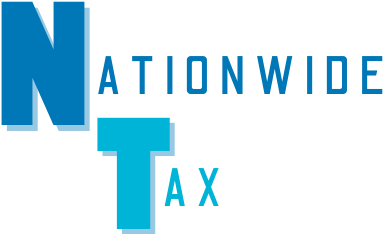Introduction
As a small business owner, navigating the complex world of taxes can be overwhelming. From understanding tax laws to ensuring compliance, there are numerous aspects to consider. One important decision you’ll need to make is how much to budget for tax preparation services. While it may be tempting to cut costs and handle your taxes on your own, investing in professional assistance can save you time, money, and headaches in the long run.
In this article, we’ll explore how much a small business should spend on tax preparation in the US. We’ll discuss the factors that influence the cost and why it’s worth considering professional tax assistance. So, let’s dive in!
Table of Contents
- Factors Influencing the Cost of Tax Preparation
- Benefits of Professional Tax Assistance
- How Much Should a Small Business Budget for Tax Preparation?
- FAQs
- Conclusion
Factors Influencing the Cost of Tax Preparation
The cost of tax preparation services for small businesses can vary depending on several factors. Understanding these factors can help you determine a reasonable budget for your business. Here are some key factors to consider:
- The complexity of your business: If your business has multiple revenue streams, operates in multiple states, or has complex financial transactions, the tax preparation process is likely to be more involved and time-consuming. This complexity can impact the cost of tax preparation services.
- The size of your business: The number of employees, contractors, and partners you have can also affect the cost of tax preparation. More entities and individuals involved may require additional paperwork and calculations, which can increase the overall cost.
- Your record-keeping practices: Good record-keeping practices can save you money on tax preparation. If your financial records are organized and well-maintained, it will be easier and quicker for tax professionals to complete your returns, potentially reducing the cost.
- The level of expertise required: Tax professionals with specialized knowledge or experience in your industry may charge higher fees for their services. However, their expertise can be invaluable in identifying deductions, credits, and other tax-saving opportunities specific to your business.
Benefits of Professional Tax Assistance
While it’s possible to handle your taxes independently, there are several advantages to investing in professional tax assistance:
- Expertise: Tax professionals have in-depth knowledge of tax laws and regulations. They stay updated on changes in tax legislation and can help you take advantage of available deductions and credits.
- Time savings: Tax preparation can be time-consuming, especially if you’re not familiar with the process. By outsourcing this task to professionals, you can focus on running your business and leave the tax-related complexities to the experts.
- Reduced risk of errors: Mistakes on your tax returns can lead to penalties, audits, and other unnecessary complications. Tax professionals have the expertise to accurately prepare your returns, minimizing the risk of errors.
- Audit support: If your business is selected for an audit, having professional tax assistance can provide peace of mind. They can help you navigate the audit process, respond to inquiries, and ensure your documentation is in order.
How Much Should a Small Business Budget for Tax Preparation?
The cost of tax preparation services for small businesses can vary widely depending on the factors mentioned earlier. On average, small businesses in the US spend anywhere from $500 to $5,000 or more on tax preparation.
It’s important to remember that while hiring a tax professional may seem like an additional expense, it can ultimately save you money in the long run. A skilled tax professional can help identify deductions, credits, and other tax-saving opportunities that you may have missed on your own. They can also ensure that your tax returns are accurate and compliant, reducing the risk of penalties and audits.
When budgeting for tax preparation, consider the following:
- The complexity of your business: If your business has intricate financial transactions or operates in multiple states, you may need to allocate a larger portion of your budget for tax preparation.
- Your expected growth: If you anticipate significant growth in your business, it may be wise to allocate a larger budget for tax preparation to account for the increased complexity in the future.
- The level of support you require: Some tax professionals offer ongoing support throughout the year, helping you with tax planning and ensuring compliance. Consider whether you need this level of support and adjust your budget accordingly.
FAQs
1. Can I handle my business taxes on my own?
While it’s possible to handle your business taxes on your own, it’s important to consider the time, expertise, and potential risks involved. Tax laws and regulations can be complex, and mistakes on your tax returns can have serious consequences. Investing in professional tax assistance can provide peace of mind and ensure accurate, compliant returns.
2. How do I find a reliable tax professional?
When searching for a tax professional, consider their qualifications, experience, and reputation. Look for certifications such as Certified Public Accountant (CPA) or Enrolled Agent (EA). Ask for recommendations from other business owners or consult professional associations for referrals.
Conclusion
While it may be tempting to cut costs by handling your business taxes on your own, investing in professional tax assistance is often worth it. The cost of tax preparation services for small businesses can vary depending on factors such as the complexity of your business, its size, and your record-keeping practices. By budgeting for tax preparation and seeking professional assistance, you can save time, reduce the risk of errors, and potentially identify tax-saving opportunities that may have otherwise been missed.
Remember, taxes are a crucial aspect of running a business, and it’s important to prioritize accuracy and compliance. So, consider the benefits of professional tax assistance and make an informed decision that aligns with your business’s needs and goals.
